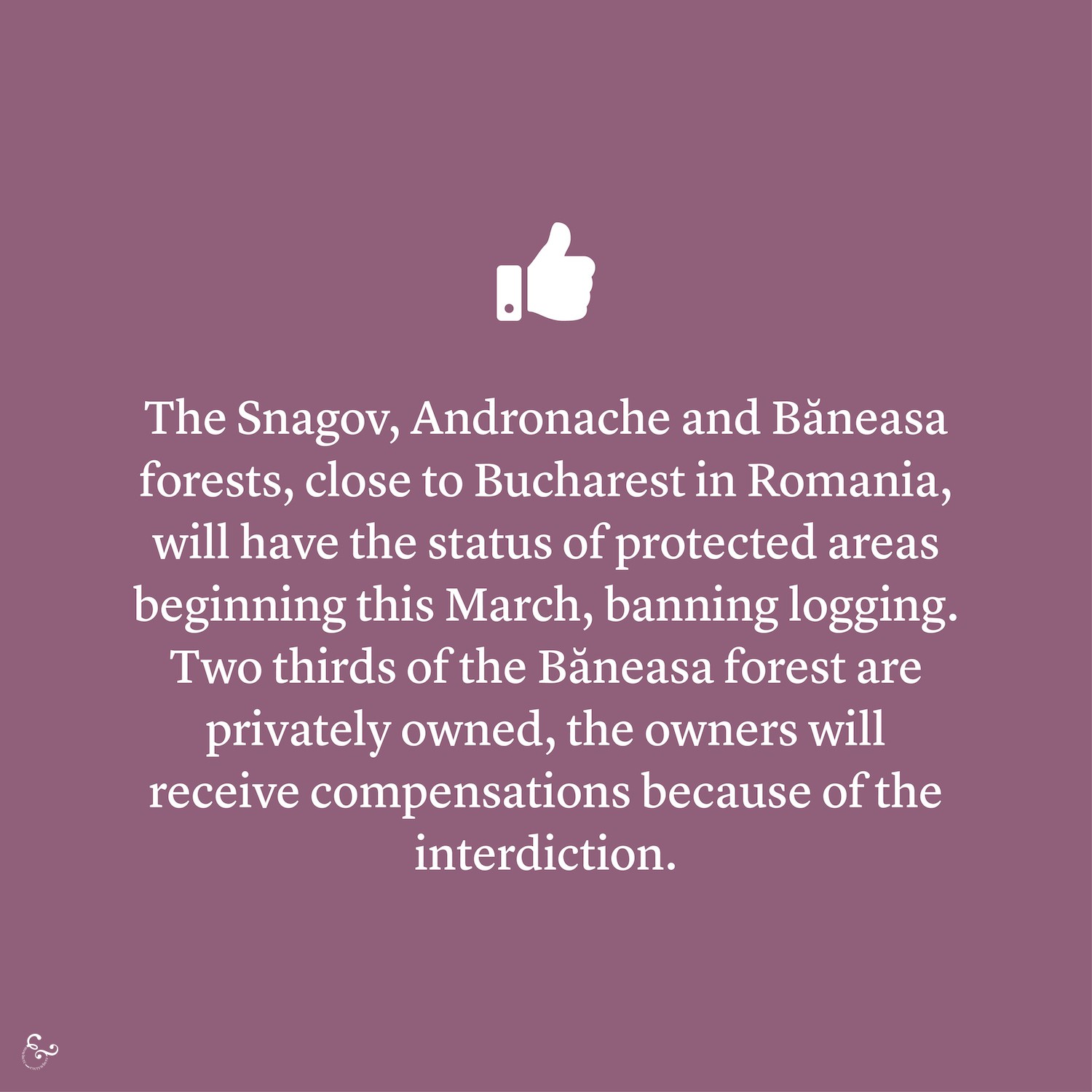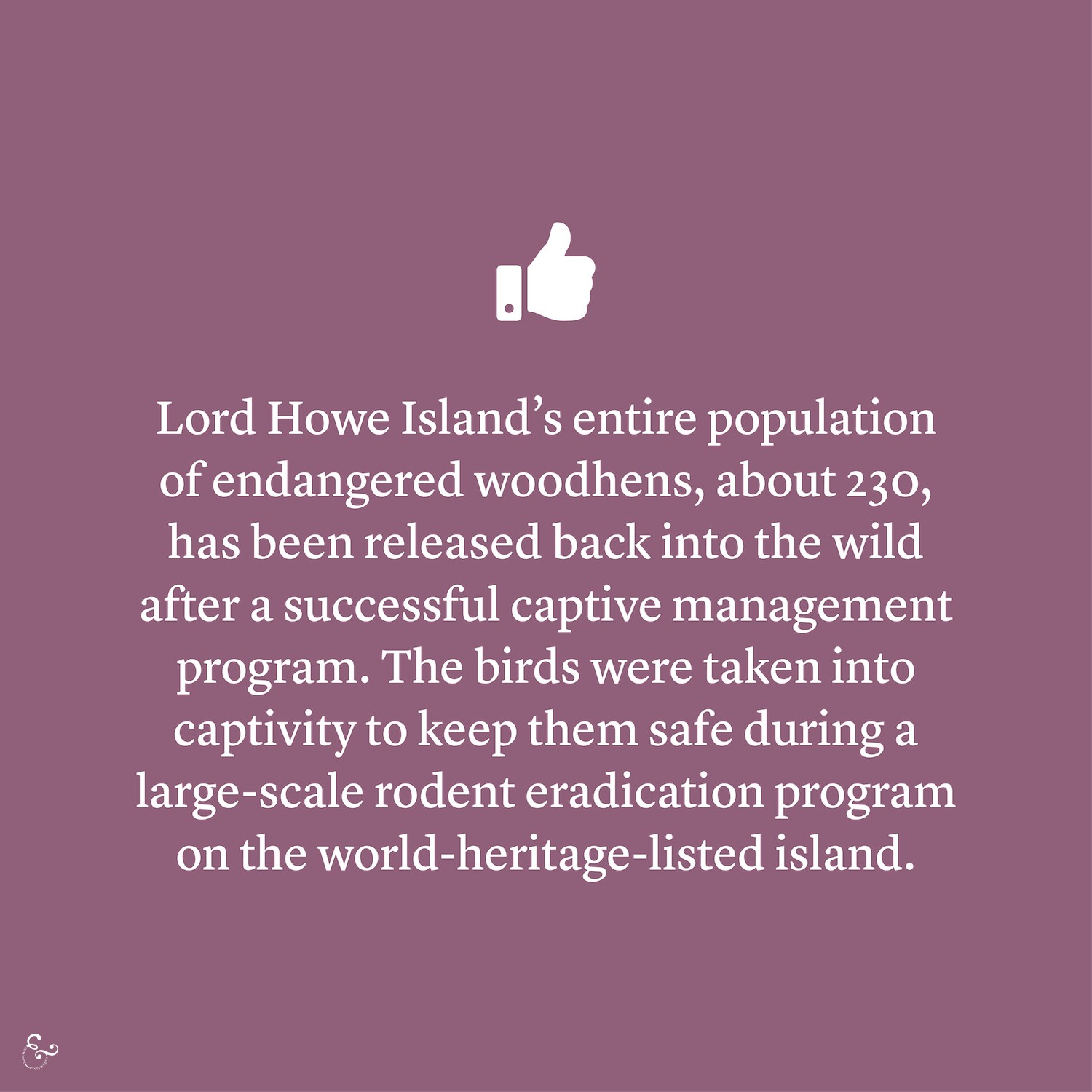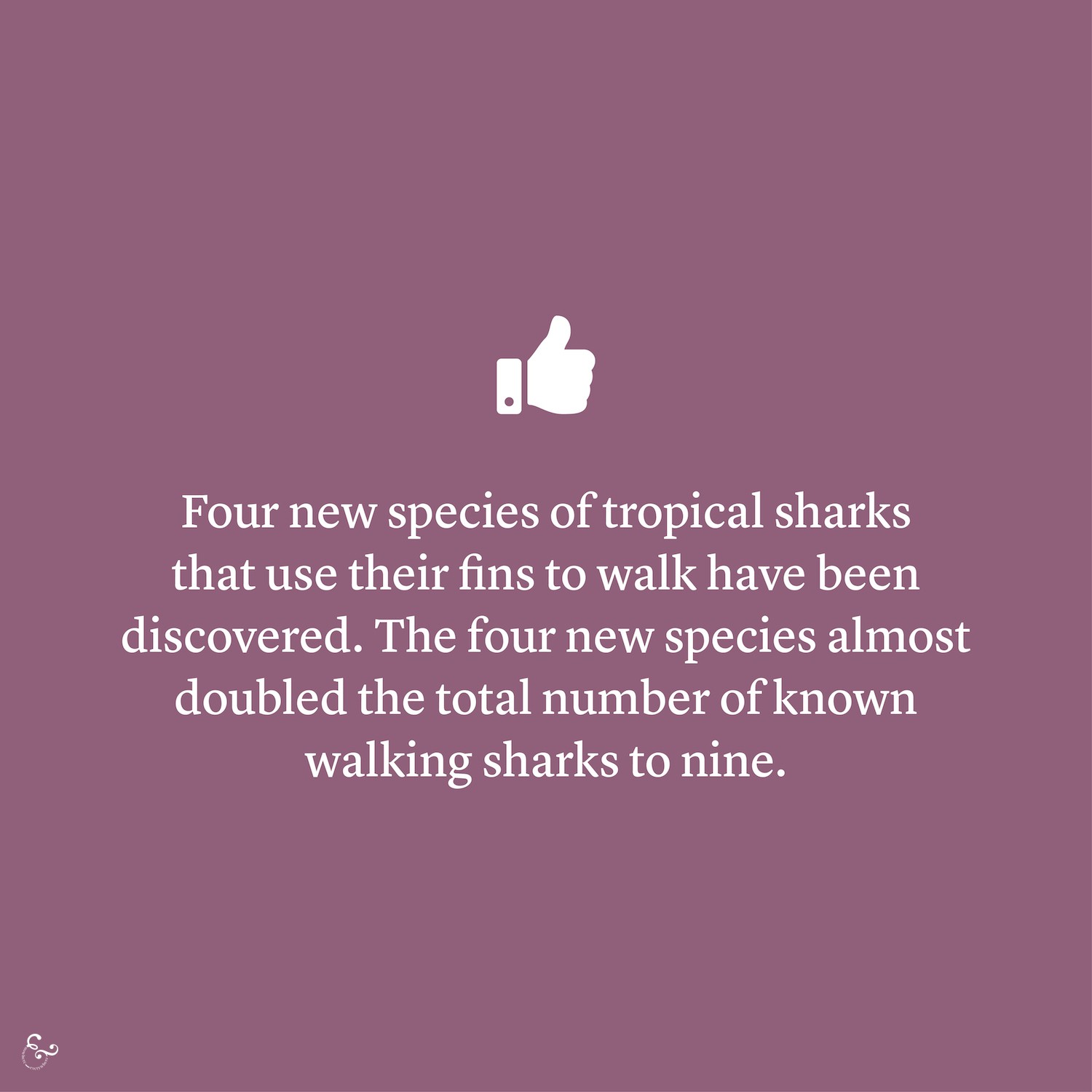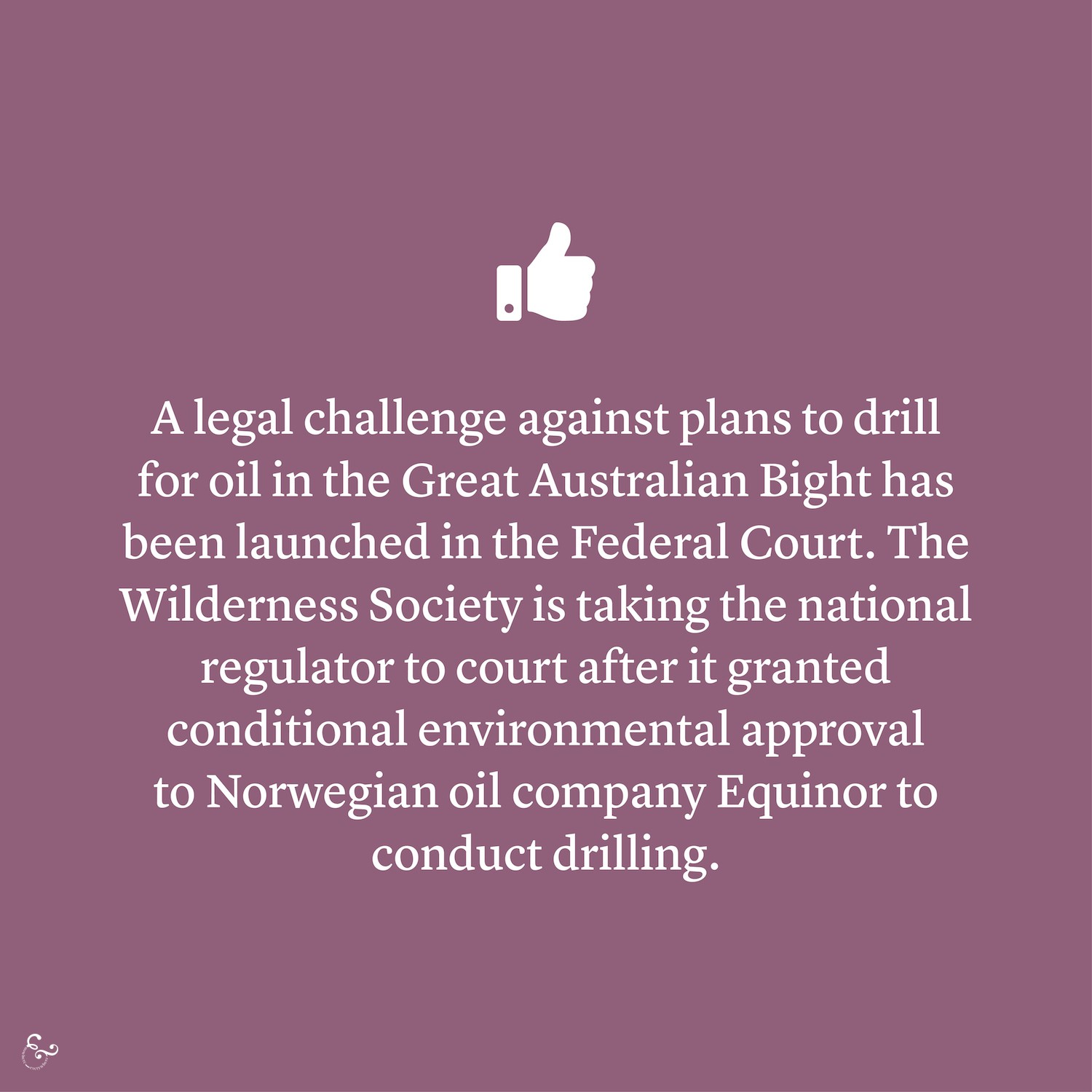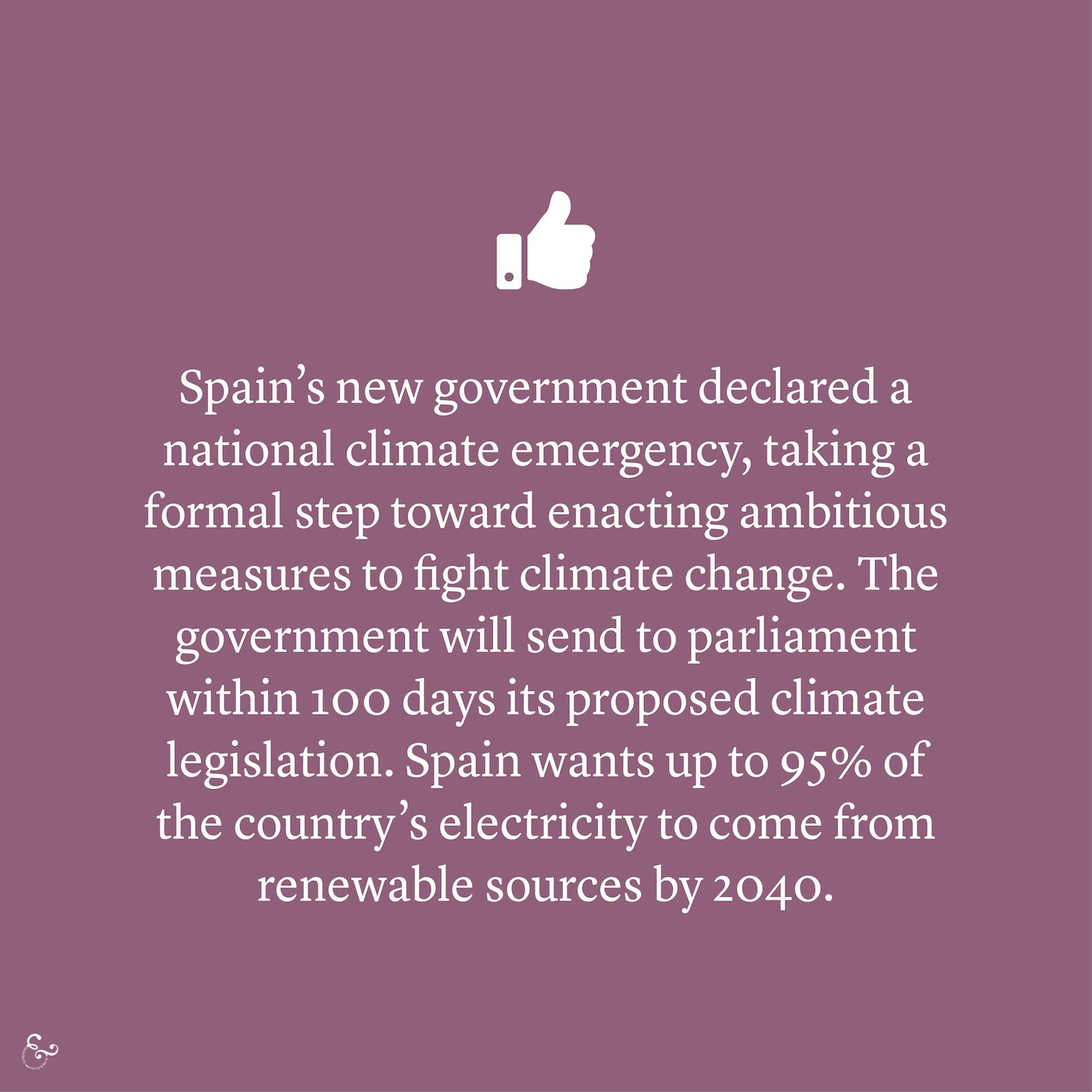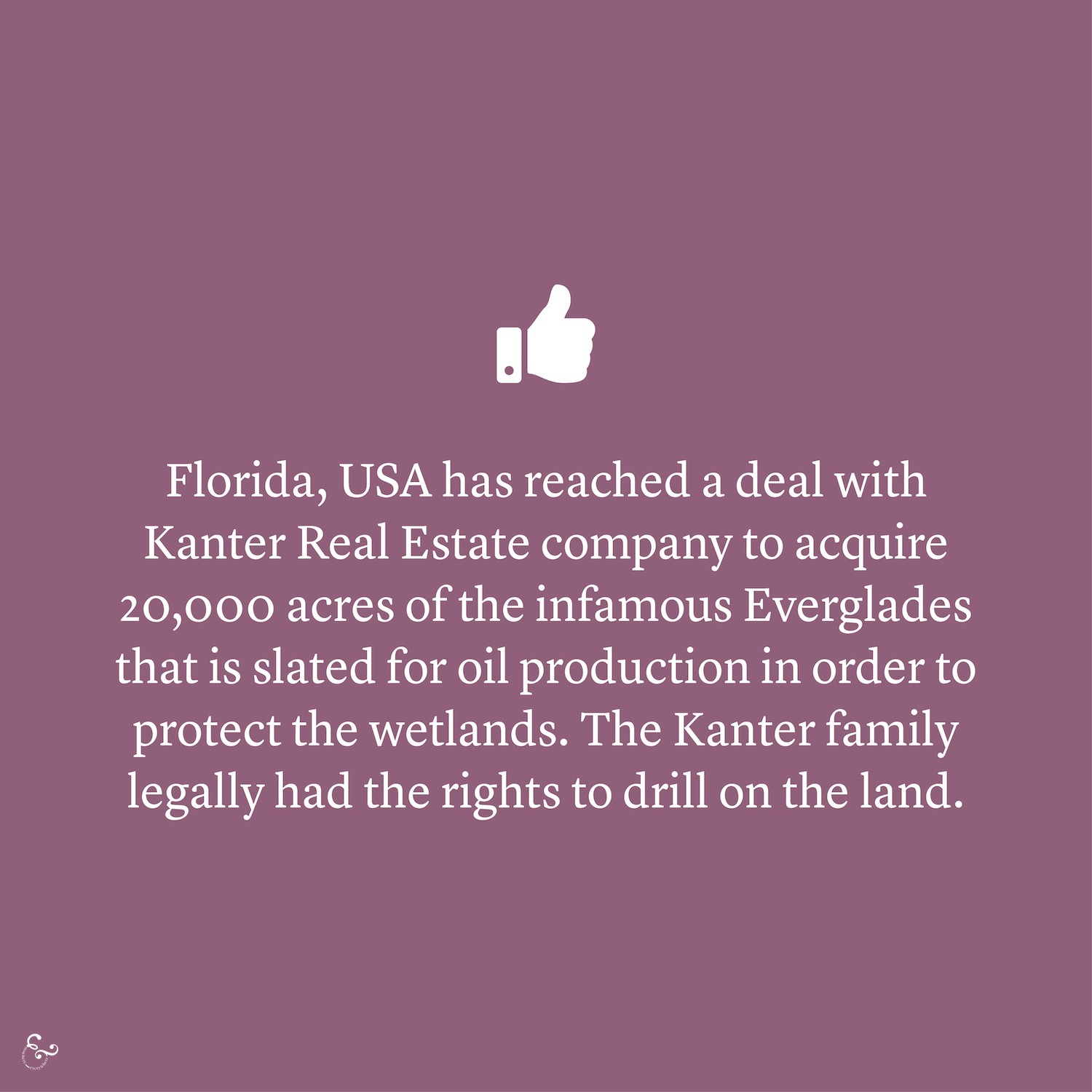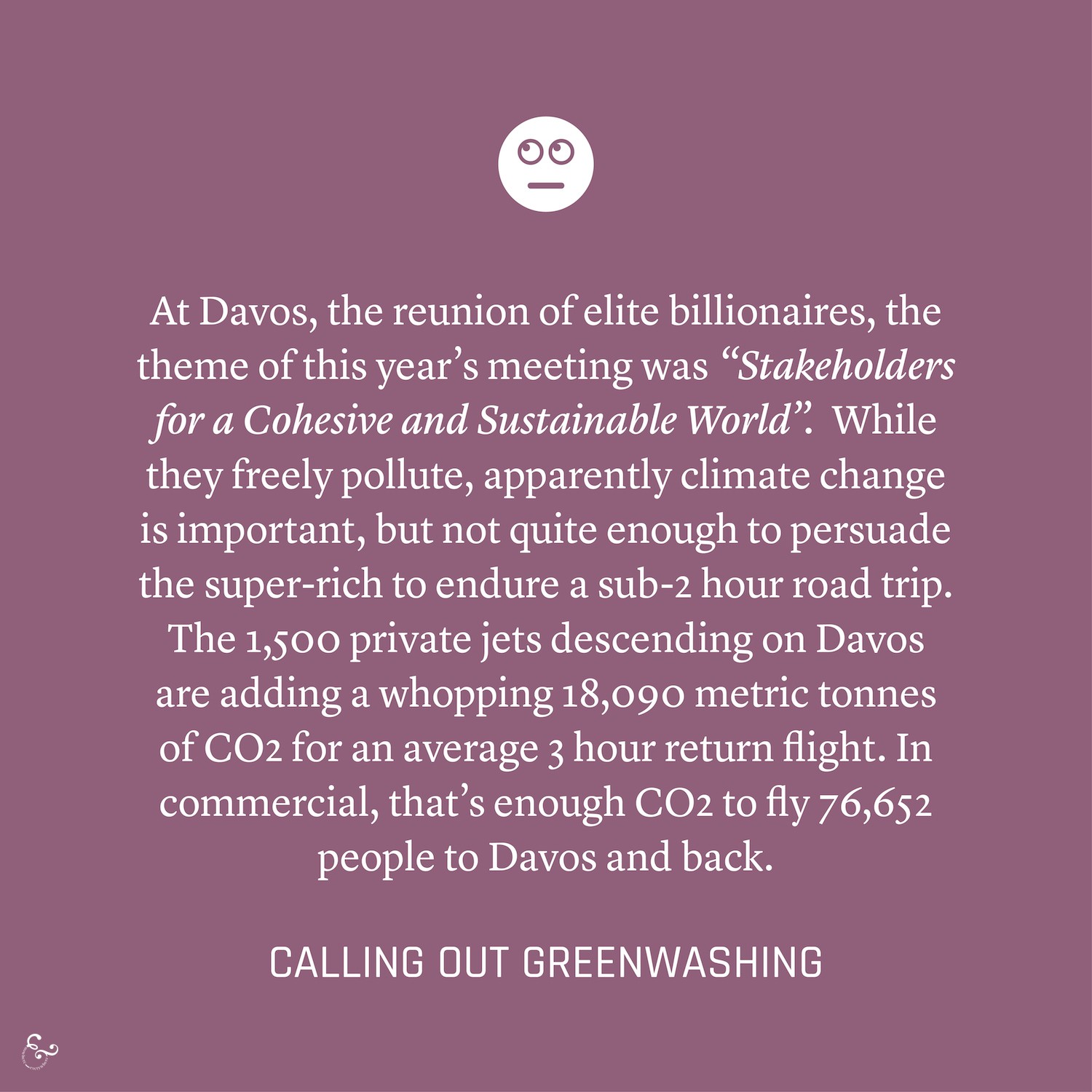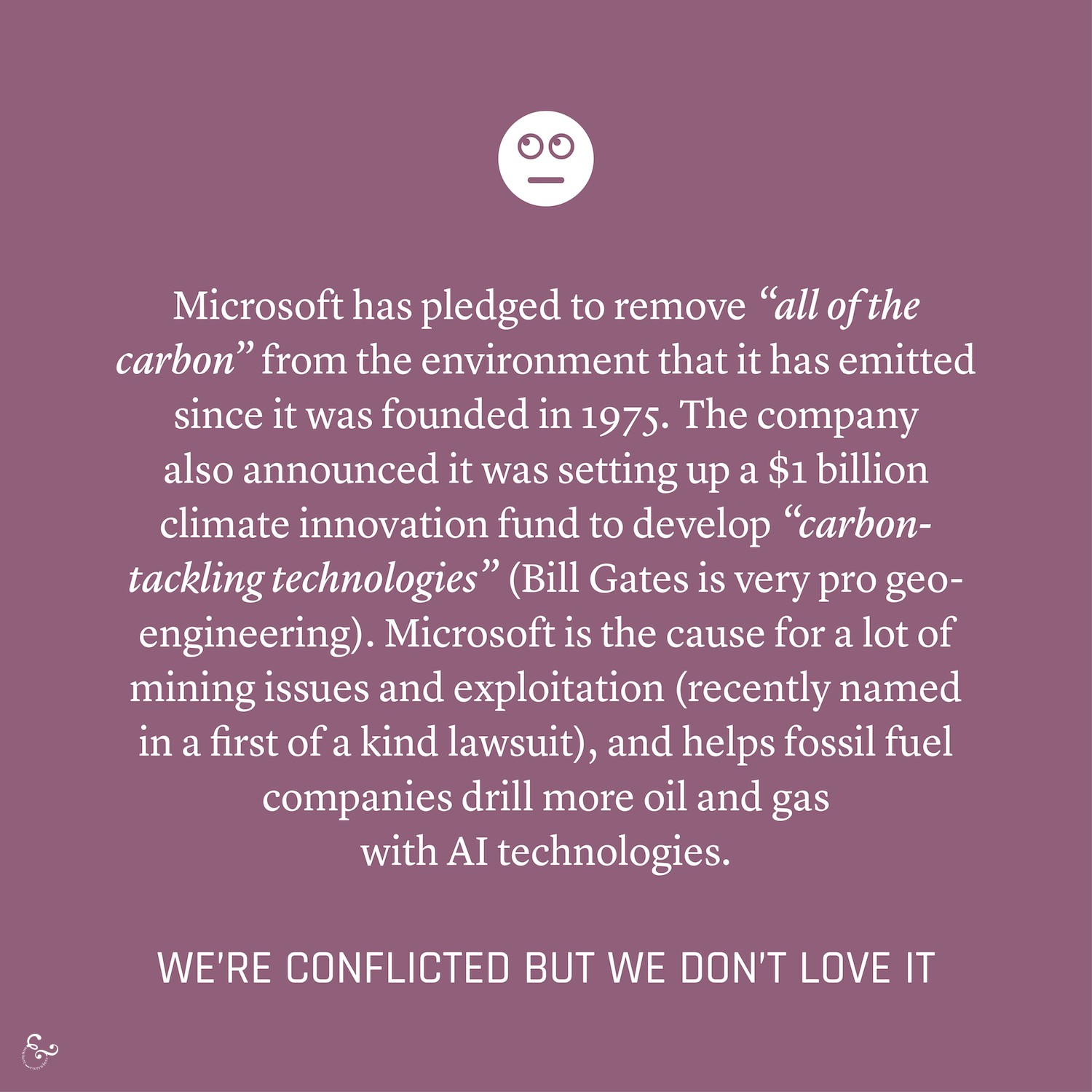Every week we do a major roundup of environmental news across the world. It is really important we all know it and share it, but it can also be pretty disheartening. The bad news is nearly always on a much, much larger scale than the good. The next few years are probably going to look the same as we enter climate feedback loops, profit incentives continue to grow, population increases and we continue to stall on our Paris Agreements. We’re interested in education, understanding systems, and the levers we can all pull for change.
But during this mammoth effort every week, we also get to see lots of little good news stories pass through our initial filter which we’re posting here. We can use these to inspire us, give us ideas in our own communities and potentially scale them up. Environmental good news can often be fairly greenwashed so we’re not interested in that and won’t consider it good news. If you see a story and decide to implement it where you live, we’d absolutely love to hear about it! Please tag us in or email us and let’s create a world of lots of local change which collectively has big impact.
- The Snagov, Andronache and Băneasa forests, close to Bucharest in Romania, will have the status of protected areas beginning this March, banning logging. Two thirds of the Băneasa forest are privately owned, the owners will receive compensations because of the interdiction. (Romania Insider)
- Lord Howe Island’s entire population of endangered woodhens, about 230, has been released back into the wild after a successful captive management program. The birds were taken into captivity to keep them safe during a large-scale rodent eradication program on the world-heritage-listed island. (ABC)
- Four new species of tropical sharks that use their fins to walk have been discovered. The four new species almost doubled the total number of known walking sharks to nine. (Phys)
- A legal challenge against plans to drill for oil in the Great Australian Bight has been launched in the Federal Court. The Wilderness Society is taking the national regulator — the National Offshore Petroleum Safety and Environmental Management Authority (NOPSEMA) — to court after it granted conditional environmental approval to Norwegian oil company Equinor to conduct drilling. (ABC)
- Spain’s new government declared a national climate emergency, taking a formal first step toward enacting ambitious measures to fight climate change. The government will send to parliament within 100 days its proposed climate legislation. The targets coincide with those of the European Union, including a reduction of net carbon emissions to zero by 2050. Spain’s coalition government wants up to 95 percent of the Mediterranean country’s electricity to come from renewable sources by 2040. (NY Post / NYT)
- Florida, USA has reached a deal with Kanter Real Estate company to acquire 20,000 acres of the Everglades that is slated for oil production in order to protect the wetlands. The Kanter family legally had the rights to drill on the land, which is why his administration had to strike a deal. (CNN)
Calling out greenwashing
- At Davos, the reunion of elite billionaires in the world, the theme of this year’s meeting was “Stakeholders for a Cohesive and Sustainable World.” They are not fundamentally changing the exploitative nature of capitalism, of both nature and people, and will not stand up to authoritarian leaders – in fact, they often embrace them. Apparently climate change is important, but not quite pressing enough to persuade the super-rich to endure a sub-2 hour road trip. The 1,500 private jets descending on Davos are adding a whopping 9,045,000kg of CO2 (estimating a 3-hour average flight.) If we include their return, we get a total of 18,090,000kg or 18,090 metric tonnes of CO2. To put that into perspective in commercial, that’s enough CO2 to fly 76,652 people to Davos and back. Oh, and they’ve had the freedom to polute for decades without consequence. (CCN / The Guardian)
- Boris Johnson and his government made what appeared to be a big announcement in foreign aid financing. “So from today the British government will no longer provide any new direct official development assistance, investment, export, credit or trade promotion for thermal coal mining coal or coal power plants overseas. Not another penny of UK taxpayers’ money will be directly invested in digging up coal or burning it for electricity.” Problem is, most UK foreign aid doesn’t support coal. Only a tiny amount of UK export credit guarantees for energy projects went to coal, with 97 percent focused on oil and gas. To make it even worse, more than 90% of the £2bn in energy deals struck at this week’s UK-Africa investment summit were for fossil fuels. The official UK government statement on the summit and a press release failed to mention these, citing only the far smaller support for clean energy. Good job, BoJo. (The Telegraph / The Guardian / FT)
We’re conflicted
- Microsoft has pledged to remove “all of the carbon” from the environment that it has emitted since the company was founded in 1975. The company also announced it was setting up a $1 billion climate innovation fund to develop carbon-tackling technologies. Bill Gates is pro geo-engineering. We’d rather not go down that path; it’s dangerous, can’t be tested at scale, messes with our ecosystems which we’re yet to successfully do without consequence and is also designed to make some people more money. Microsoft is also the cause for a lot of mining issues and exploitation for the technology, and helps fossil fuel companies drill more oil and gas with machine-learning and other AI technologies. Apple, Google, Dell, Microsoft and Tesla were recently named as defendants in a lawsuit filed in Washington DC by human rights firm International Rights Advocates for forced labour and further compensation for unjust enrichment, negligent supervision and intentional infliction of emotional distress for mining for cobalt in the DRC. (BBC / The Guardian)
- A lot of elated news making the rounds that Greece elected its first woman president. Katerina Sakellaropoulou gained support across party lines and it’s great to have more women in – at least symbolic – power. Her expertise is environmental and constitutional law. Greek presidents serve as head of state with “limited political power, as most power lies with the government,” according to the Greek Ministry of Foreign Affairs. The Prime Minster heads the government and appoints the president, who is then elected by parliament. It hasn’t been without controversy within Greece due to her involvement in mining cases. (Fast Company / Global Citizen / The Press Project)
